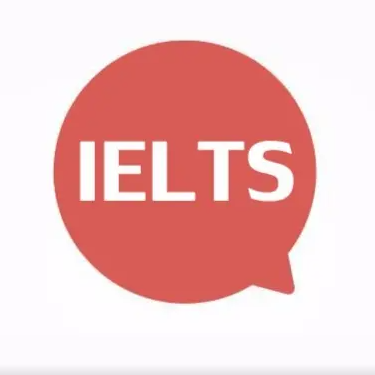19年1月26日雅思考试真题
2019-01-31 14:40 | 编辑:川外外语培训中心 来自:未知导读:重点关注:Section 1填空题需注意单词拼写及辨音;Section 4出现单选配对,题型多样; 填空选择比例 22:18,考试难度一般。 Section 1 题型:Completion 场景 : 咨询 一句话简介 关于游泳课程的对话 详细回忆: Questions 1-10 Completion 1. Introduce bre
重点关注:Section 1填空题需注意单词拼写及辨音;Section 4出现单选配对,题型多样; 填空选择比例 22:18,考试难度一般。
Section 1
题型:Completion
场景 : 咨询
一句话简介 关于游泳课程的对话
详细回忆:
Questions 1-10 Completion
1. Introduce breathing techniques in water
2. Focus on the safety
3. Improving the diving
4. Intermediate course are for adults
5. 13th / 30th January
6. Each learner should bring a towel
7. Aim to improve speed
8. Bring change to rent locker
9. Required to swim with a hat
10. Improve confidence
重点词汇及扩展: 整体难度不大,词汇拼写较多,注意 towel 的发音,与 Tower 的不同,不要写错。
Section 2
题型:介绍
场景:Multiple Choice(s)
一句话简介: 家庭如何节约能源
详细回忆 :
Questions 11-16 Multiple Choice
11. What was the Jill surprised about?
A. The work on the house will start soon
12. What does Jill say every family can do straight away?
C. Turn off the appliance completely
13. What is Jill pleased about energy provider?
B. Allow online payment by customers
14. What difficulty does Jill have with the energy meter
B. The figures are hard to be read accurately
15. What energy-saving method does Jill going to take next?
A. Install double -glazed window
16. Why is Jill doubtful about renewable energy?
A. She thinks it is unsuitable for her house
Questions 17-20 Multiple Choices
17-18
D. turn off the tap while brushing teeth
E. repair drained tap
19-20
A. 热水器最好调到几度省电
D. 省电的设备
重点词汇及扩展 :
选择题题干较长,选项长,因此审题难度较大;注意在听题时,利用单选题听题技巧,排除干扰信息;多选题注意选项替换,注意及时过度,语速较快
Section 3
场景:课题研究
一句话简介: 女生要做一个关于老房子历史的课题
题型:Completion
详细回忆:
Questions 21-30 Completion
21 Information on the history of a village
22. Need to look at the ground plan
23. Go to library to get large-scale maps
24. Need to focus on drawings: fireplaces
25. Reasons for choosing this topic
26. Taking a piece of wood to get examinations
27. Should describe problems fully and honestly
28. Two aspects of consider: age
29. occupancy
30.Should mention: unanswered questions
重点词汇及扩展: 注意单选题和配对题的做法,排除干扰项,适当记录重要信息辅助找同义表达
Section 4
场景:专题研究
题型:Multiple Choices/ Matching/ Completion
一句话简介:机场未来建设
详细回忆:
Questions 31-33 Multiple choice
31. Recently a fast growth of construction of new airports?
C. deserves close attention
32. One noticeable fact is that construction of new airport is?
B. more important than other buildings
33. What are the airport, cities and town in common?
A. respond to change
Questions 34-38 Matching
34. S1 – there are more expensive flights because the economic depression
35. S2 – there are emerging new airports
36. S3 – there are also new transports patter appeared
37. S4 – people’s interest in flying is declining in Western countries
38. S5 – airlines cannot hold business because the costly maintenance
39-40 Completion
39. If the environmental problems continue, the airport must be imposed on the “green tax”.
40. The flight will close down if a trip does not get an insurance.
重点词汇及扩展:
注意填空题定位词的判断,同义表达及答案的拼写和辨音,注意检查。
Task 1
类别: Table
题目: The table below shows the medical care in three European
countries in the year between 1982 and 2000.
Summarize the information by selecting and reporting the
main features, and make comparisons where relevant.
题目翻译:
该表格显示了欧洲三个国家的医疗情况(病床数,医生人数和住院时间)在三年中的比较。选取主要的特征对信息进行概括,在相关的地方进行比较。
要素回忆(数据仅供参考)
静态表格,纵向为三个领域三个国家对比,横向为三个年份的变化。
Country 1982 1990 2000
Physicians Country A 10 23 32
Country B 19 24 31
Country C 20 25 30
Number of bed on average Country A 20 18 16
Country B 19 20 23
Country C 22 16 12
Time to stay in hospital (days) Country A 2 11 9
Country B 12 9 8
Country C 14 10 6
写作指导:
1. 注意时态,要用过去时。
2. 可先分别描写不同国家在三个年份的医疗情况比较(横向描写)。
3. 再就三年的时间里三个国家的变化的差异比较(纵向描写)。
重点表达式 :
… ranked the first.
Ranked in the third place was ...
… had the second most income.
The data of … was much larger than that of …
There was more data of … than that of …
in terms of ... = with regards to …
There was a dramatic ascent in the number of ...
The number of XX followed, which increased from XX to XX.
The figure for XX came right at the bottom.
The quantity of XX grew like a rocket, arriving at its highest level of XX.
The data of XX almost doubled.
推荐练习:
剑桥真题 5, Test 4
剑桥真题 6, Test 1
近期考试趋势: 近三个月考的大多是线图、地图和表格,根据以往经验,接下来几次需注意柱图、线图及流程图。
Task 2
类别: 社会类
题目: Some people believe that women should play an equal role as
men in a country’s police force or military force, while others
think women are not suitable for these kinds of jobs. Discuss
both views and give your opinion.
题目翻译: 一些人认为女性应该和男性扮演平等的角色在国家警察和军队上,然而
其他人认为女性不适合这些类型的工作。讨论两方并给出自己的观点。
写作指导:
1. 注意时态,不要出现过去时(除非是举过去的例子)
2. 不管立场是中立还是一边倒,一定要讨论双方观点
推荐立场:中立,女性参加是合理的,虽然存在不合适。
推荐思路:四段式
中间两段可以思考女性从事军警职业的原因、影响。
Opening: 背景介绍,表达观点,即从事这类职业是可行且合理的,但是她们的工作要合适其性别的特征和优势,要考虑她们的个人意愿。
Body1:
1. 女性从军或者扮演女警角色不是没有道理的,保卫国家,维护社会安宁,人人有责,女性也不例外。
2. 选择自己喜欢的职业,人人应该享有均等的权利,禁止女性入伍及从警是对女性选择自己喜欢的事业中这一权利的侵犯。
3. 女性从事警察职业或者从军,可以发挥其性别优势,因为女性心思缜密,天性温柔。例如,在一些医护和后勤工作上,女性更为合适。
Body2:
1. 军人或警察是高危职业,因此,不适合女性,设想,如果女性从事刑侦工作,那么她们不仅不能有效破案,而且这份工作还有可能威胁她们的安全。同时军人有上战场的责任,在真实的战争中,女兵从体能和意志力上不如男性。
2.从心理上来讲,不是所有女性都喜欢参军或从事警察职业,从发展前景来看,女性在这一行业都不及男性光明,因为女性的精力会更多的放在照顾家庭和孩子上。
Conclusion: 重申立场,总结观点,做适当展望
重点表达:
to join the army = to enroll oneself in the army = to go into the
army = to enlist in the army;
is allowed to join the army;
sex discrimination;
gender equality;
the seeker sex;
male-dominated society;
army and police;
protect one’s home and defend one’s country;
attentiveness and gentleness;
suffer = victims;
spiritual comfort and emotional support;
is prone to get injured;
curative activity;
individual propensity=personal willingness
题目评价 :重复 2011.02.19 和 2003.09.20 考题,难度一般
推荐练习:
2003.09.20 In many countries women are not able to join the army. But some people think women should be a member of the army, navy and air force. Do you agree or disagree?
近期考试趋势: 雅思写作在具体化问题的同时仍在考旧题。最近可多关注社会、教育和政府类话题。
Reading Passage 1
Title : 新西兰儿童 Robin 发现头盖骨之谜
Question types:
TRUR/ FALSE/ NOT GIVEN 4 题 Completion 9 题
文章内容回顾: 新西兰儿童 Robin 发现了海边的一个头盖骨,三位博士对此发现进行了研究,并测定这个头骨的年代属于 296 年。
题目及答案回顾:
Questions 1-7 TRUR/ FALSE/ NOT GIVEN
1.TRUE
2. FALSE
3. FALSE
4. NOT GIVEN
Questions 5-13 Completion
5. specialists
6. European
7. radiocarbon
8. 296
9. race
10. gender
11. Australia
12. archaeologists
13. shipwreck
题型技巧分析:
判断题:大方向(定位词)+小范围(考点词)
填空题:需要注意字数限制和空格前的动词或形容词
剑桥雅思推荐原文练习: 剑 7Test 3 Passage2
Reading Passage 2
Title: Coral Reef(珊瑚礁)
Question types:
Matching Information 6 题
TRUR/ FALSE/ NOT GIVEN 6 题
Multiple Choice 1 题
文章内容回顾 : 文章介绍了珊瑚礁的分布和价值,存在的问题(减少)以及人们为保护珊瑚礁做出的努力。
题目及答案回顾:
Questions 14-19 Matching Information
14. Geographical location of world’s coral reef A
15. How does coral reef benefit economy locally C
16. The statistics of coral reefs economic significance C
17. The listed reasons for declining number of coral reef D
18. Physical approach to coral reef by people E
19. Unsustainable fishing methods are applied in regions of the world D
Questions 20-25 TRUR/ FALSE/ NOT GIVEN
20. Coral reefs provide habitat to variety of marine life. TRUE
21. Coral reef distribute around the ocean disproportionally. TRUE
22. Coral reef is increasingly important for scientific purpose. NOT GIVEN
23. Coral reefs are greatly exchanged among and exported to other counties. NOT GIVEN
24. Reef tourism is of economic essence generally for some poor people. TRUE
25. As with other fishing business, coral fishery is not suitable to women and children. NOT GIVEN
Question 26 Multiple Choice
26. What is the main purpose of the this passage
A. Demonstrate how coral reef grow in the ocean
B. To tell that coral reef is widely used as a scientific project
C. Present the general benefits and an alarming situation of coral reef
D. To show the vital efforts made to protect coral reef in Australia
Coral reefs are underwater structures made from calcium carbonate secreted by corals. Coral reefs are colonies of tiny living animals found in marine waters that contain few nutrients. Most coral reefs are built from stony corals, which in turn consist of polyps that cluster in groups.
Coral reefs
A
Coral reefs are estimated to cover 284,300km2 just under 0.1% of the oceans' surface area, about half the area of France. The Indo-Pacific region accounts for 91.9% of this total area. Southeast Asia accounts for 32.3% of that figure, while the Pacific including Australia accounts for 40.8%. Atlantic and Caribbean coral reefs account for 7.6%. Yet often called “rainforests of the sea", coral reefs
相关文章内容: form some of the most diverse ecosystems on Earth. They provide a home for 25% of all marine species, including fish, mollusks (软体动物 ), worms, crustaceans( 甲壳类动物 ), echinoderms( 棘皮动物 ), sponges, tunicates and other cnidarians. Paradoxically, coral reefs flourish even though they are surrounded by ocean waters that provide few nutrients. They are most commonly found at shallow depths in tropical waters, but deep water and cold water corals also exist on smaller scales in other areas. Although corals exist both in temperate and tropical waters, shallow-water reefs form only in a zone extending from 30°N to 30°S of the equator. Deep water coral can exist at greater depths and colder temperature sat much higher latitudes, as far north as Norway. Coral reefs are rare along the American and African west coasts. This is due primarily to upwelling and strong cold coastal currents that reduce water temperatures in these areas(respectively the Peru, Benguela and Canary streams). Corals are seldom found along the coastline of South Asia from the eastern tip of India (Madras) to the Bangladesh( 孟加拉国) and Myanmar borders. They are also rare along the coast around northeastern South America and Bangladesh due to the freshwater release from the Amazon and Ganges Rivers(恒河), respectively.
B
Coral reefs deliver ecosystem services to tourism, fisheries and coastline protection. The global economic value of coral reefs has been estimated at as much as $US375 billion per year. Coral reefs protect shorelines by absorbing wave energy(潮汐能), and many small islands would not exist without their reef to protect them.
C
The value of reefs in biodiverse (生物多样的) regions can be even higher. In parts of Indonesia and the Caribbean where tourism is the main use, reefs are estimated to be worth US$1 million per square kilometer, based on the cost of maintaining sandy beaches and the value of attracting snorkelers(浮潜者) and scuba divers(水肺潜水). Meanwhile, a recent study of the Great Barrier Reef in Australia found that the reef is worth more to the country as an intact ecosystem than an extractive reserve for fishing. Each year more than 1.8 million tourists visit the reef, spending an estimated AU$4.3 billion (Australian dollars) on reef-related industries from diving to boat rental to posh island resort stays. In the Caribbean, says UNEP, the net annual benefits from diver tourism was US$2 billion in 2000 with US$625 million spent directly on diving on reefs. Further, reef tourism is important source of employment, especially for some of the world's poorest people. UNEP says that of the estimated 30 million small-scale fishers in the developing world, most are dependent to a greater or lesser extent on coral reefs. In the Philippines, for example, more than one million small-scale fishers depend directly on coral reefs for their livelihoods. The report estimates that reef fisheries(渔场) were worth between $15,000 and$150,000 per square kilometer a year, while fish caught for aquariums (水族馆) were worth $500 a kilogram against $6 for fish caught as food. The aquarium fish export industry supports around 50,000 people and generates some US$5.5 million a year in Sri Lank along.
D
Unfortunately, coral reefs are dying around the world. In particular, coral mining, agricultural and urban runoff(入水), pollution(organic and inorganic), disease, and the digging of canals and access into islands and bays are localized threats to coral ecosystems(生态系统). Broader threats are sea temperature rise, sea level rise and pH changes from ocean acidification( 酸 化 ), all associated with greenhouse gas emissions. Some current fishing practices are destructive and unsustainable. These include cyanide fishing, overfishing and blast fishing. Although cyanide(氰化物毒) fishing supplies live reef fish for the tropical aquarium market, most fish caught using this method are sold in restaurants, primarily in Asia, where live fish are prized for their freshness. To catch fish with cyanide, fishers dive down to the reef and squirt cyanide in coral crevices and on the fast-moving fish, to stun the fish making them easy to catch. Overfishing is another leading cause for coral reef degradation. Often, too many fish are taken from one reef to sustain a population in that area. Poor fishing practices, such as banging on the reef with sticks(muro-ami), destroy coral formations that normally function as fish habitat. In some instances, people fish with explosives(爆炸物) (blast fishing), which blast apart the surrounding coral.
E
Tourist resorts that empty their sewage directly into the water surrounding coral reefs contribute to coral reef degradation. Wastes kept in poorly maintained septic tanks can also leak into surrounding ground water, eventually seeping out to the reefs. Careless boating, diving, snorkeling and fishing can also damage coral reefs. Whenever people grab, kick, and walk on, or stir up sediment(沉淀物) in the reefs, they contribute to coral reef destruction. Corals are also harmed or killed when people drop anchors on them or when people collect coral.
F
To find answers for these problems, scientists and researchers study the various factors that impact reefs. The list includes the ocean's role as a carbon dioxide sink, atmospheric changes, ultraviolet light(紫外线光) , ocean acidification, viruses, impacts of dust storms carrying agents to far flung reefs, pollutants, algal blooms and others. Reefs are threatened well beyond coastal areas. General estimates show approximately 10%of the world’s coral reefs are dead. About 60% of the world's reefs are at risk due to destructive, human-related activities. The threat to the health of reefs is particularly strong in Southeast Asia, where 80% of reefs are endangered.
G
In Australia, the Great Barrier Reef(大堡礁) is protected by the Great Barrier Reef Marine Park Authority, and is the subject of much legislation, including a biodiversity action plan. Inhabitants of Ahus Island, Manus Province, Papua New Guinea, have followed a generations-old practice of restricting fishing in six areas of their reef lagoon(环礁湖). Their cultural traditions allow line fishing, but not net or spear fishing. The result is both the biomass and individual fish sizes are significantly larger than in places where fishing is unrestricted.
题型技巧分析:
优先完成判断题,利用细节信息的提示完成细节配对,最后根据全文大意选出最恰当的文章标题。
剑桥雅思推荐原文练习: 剑 10 Test 2 Passage 2
Reading Passage 3
Title: Flexible Work
Question types:
Matching information 8 题
Matching Features 3 题
Completion 3 题
文章内容回顾 : 文章介绍了弹性工作制度对员工和公司带来的好处
题目及答案回顾 :
Questions 27-34 Matching information
27. A (公司以员工满意度为核心)
28. B (灵活工作的不利处)
29. C (现代科技使得不在办公室的时候也很方便工作)
30. D (两个科技运用到灵活办公中)
31. F ()
32. G (员工信息分享)
33. H (与顾客相关)
34. I (员工的满意度)
Questions 35-37 Matching Features
35. C
36. A
37. B
Questions 38-40 Completion
38. satisfaction
39. email
40. tasks
题型技巧分析:
本篇文章中的主旨配对题难度较大,可以放在最后完成;人名配对会覆盖文章较长篇幅的信息,同时也给段落主旨大意提供了一些提示,
剑桥雅思推荐原文练习: 剑 13Test2Passage3
考试趋势分析和备考指导:
本厂阅读考试整体文章难度不大,填空题较多,并且综合了不同题型。第三篇出现了主旨匹配和人名匹配,使得整体考试难度略有上升;此外,本场考试并未出现常考的单选题,以及完成句子配对,因此 2 月份的考生需要加以重视,最后主旨配对和细节配对依然是重难点。
Part 1考题总结
基本题
Hometown
Where’s your hometown?
Do you like it?
What do you like most about it?
What don’t you like about it?
Are there any tourist attractions?
Where would you recommend a tourist to visit?
Would you want to move somewhere else in the future?
Work or Study
Do you work or study?
Do you like it? Do you find it interesting?
What do you find most difficult with your job/studies?
Do you think your job/subject is easy or difficult?
What are you planning to do in the future?
考题总结 :
Focusing on Study
What’s your favorite subject in your major?
What did you learn from your major?
Which one do you prefer, interesting major or interesting classmates?
How did you feel on the first day of school?
Do you think the first day of school is important?
What are more important to your studies, teachers or students?
Do you prefer studying in the morning or afternoon?
What kind of job do you want in the future?
Did you do any part time work whilst you were studying?
Focusing on work
Do you like your work or the working environment?
What is your career plan in the future?
How did you feel on the first day of work?
Is the first day at work important?
Do you want to change jobs in the future?
Accommodation
How long have you lived there?
Do you plan to live there for a long time?
Do you prefer living in a house or a flat?
What do you usually do in your house/flat?
What part of your home do you like most?
Which room does your family spend most ot the time in?
爱好题
Movies/Films
Do you like watching movies?
What kind of film do you like?
How often do you watch movies?
Who do you watch movies with?
Did you like watching movies when you were young?
What did you like to watch?
Where do you usually watch movies
Do you prefer to watch movies in a cinema or at home?
Do you watch the same style of movies in the past and now?
Cooking
Have you ever cooked?
Do you like cooking?
Do you want to learn how to cook?
Is it difficult to cook Chinese food for you?
Music
What kinds of music do you like?
When was the last time you went to a concert or watched a music video?
What are the differences of listening to songs live and from the CD?
Which one do you prefer?
Paintings
What do you know about paintings?
Have you learned drawing or painting?
Is it important to hang pictures at home?
What kind of paintings do you like?
If someone wants to draw a picture of you, will you agree?
休闲题
Email
How often do you write an email? Who do you write to?
What kind of email do you receive that makes you happy?
Do you think it’s important to reply emails quickly?
Sleep
How much sleep do you need every day?
Do you take naps at noon?
Do you like to read before bed?
How have your sleeping habits changed since you were young?
Tea and coffee
Do Chinese people like to drink tea or coffee?
Do you prepare tea or coffee for guests at home?
When was the last time you drank tea or coffee?
Photos
Do you like to take photos?
How often do you take photos?
How do you keep your photos?
In what situations do you take photos?
Foreign food
Have you ever tried foreign food? Do you like to try new food?
What kinds of new food have you tried recently?
What kinds of foreign food are popular in your country?
Do you like any food from the countries near China?
Public Holidays
Do you have many public holidays in China?
Do you want more holidays?
Do you like public holidays?
Which holiday do you like most?
What do you usually do on public holidays?
Would you like more public holidays?
Transport
What transport do you like to take when you go travelling?
Do you prefer public transport or private transport when you go out?
Which did you choose the last time you went out? Why?
What advice would you give to the visitors to your country on transport?
How can the government encourage people to take the public transport?
Plants
Do you keep plants at home?
What plant did you grow when you were young?
Do you know anything about growing a plant?
Do Chinese people send plants as gifts?
另类题
Stars
Who is your favorite movie star?
Are international stars popular in your country?
Have you ever met a celebrity/superstar in real life?
Do you want to be a superstar?
Shoes
How often do you buy shoes?
Have you ever bought shoes online?
Do you know anyone who likes to buy a lot of shoes?
What’s your favorite type of shoes?
Sky
How often do you look at the sky?
Do you prefer the sky in the morning or the sky at night?
Can you see the moon and stars at night where you live?
Is there a good place to look at the sky where you live?
Crowded places
What places do you think are often crowded?
When was the last time you were in a crowded place?
How do you feel when you are in crowded places?
Drink water
How often do you drink water?
What kinds of water do you like to drink?
Do you drink bottled water or water from water machines?
Sunglasses
Do you like to wear sunglasses?
Where can you buy sunglasses?
Do people in your country wear sunglasses?
Sharing
Do you have anything to share with others recently?
Did your parents teach you to share when you were a child?
What kinds of things do you like to share with others?
What kinds of things are not suitable for sharing?
Patience:
Were you patient when you were young?
How do you feel when other people are not patient?
Were you less or more patient when you were angry?
Part 2考题总结
人物题
1. An intelligent person you know.
2. An interesting old person you met.
3. Someone you would like to work or study with.
4. A person who helps to protect the environment.
5. A person you know who is beautiful or handsome.
6. A teenager you know.
7. A person who is talkative.
8. A childhood friend of yours.
9. A person you like to talk with.
10. A friend who you think is a good leader.
11. A family member you like to work with.
12. A popular band or singer in your country.
13. Someone you haven’t seen before but you would like to meet.
14. A person you wanted to be similar to when you were growing up.
地点题
15. A perfect house you saw.
16. A far place that you want to visit.
17. A place you want to travel to in the future.
18. A public facility which improves your local area.
19. An outdoor or indoor place where it is easy to study.
20. A beautiful city.
21. A famous place in China.
22. A quiet place you found.
23. A park or garden you like to visit.
24. A historical place that interests you.
25. An interesting part of your country.
26. A street market that you went for shopping.
物件题
27. A book you want to write.
28. Something you bought but don’t often use.
29. Something lost by others but found by you.
30. A kind of food people eat on special occasions.
31. A present you received which was made by hand.
32. A subject you didn’t like before but have interest now.
33. A piece of good news you recently heard on TV or on the internet.
34. An interesting animal.
35. A magazine that you like.
36. A family business you know.
37. An important plant in your country.
38. A special toy from your childhood.
39. A piece of good law in your country.
40. A skill that took you a long time to learn.
41. A film or TV program that made you laugh.
42. A game that you played in your childhood.
43. A foreign language that you would like to learn.
44. An interesting job you would like to have in the future.
事件题
45. A time you enjoyed your free time.
46. A time you received horrible service.
47. A historical period you would like to know.
48. A situation when you didn’t have enough time for.
49. A time you taught something new to a younger person.
50. A time that someone didn’t tell you the whole truth about something.
51. A time that you forgot something.
52. An occasion when you were scared.
53. A time when you had some medicine.
54. A sports you watched before and want to try.
55. A time when you borrowed things from others.
56. Something interesting you want to learn more about.
57. A time that you looked for information from the internet.
雅思口语趋势分析和备考指导 :
本次考试迎来了 2019 年 1 月的第三次考试。纵观这次考试,不难发现口语各部分基础题保持不变。但是因为涉及新题季,所以在口语各个部分的话题考查中多了不少新题的出现。接下来我们一起来分析此次口语考试的基本情况。
Part 1:
该部分的内容和之前几个季度的考题相比,1 月更新的题型具有一定的难度。笔者在授课过程中,很多考生都明显感觉到 part 1 的新考题比之前的考题内容难度有所增加。特别是对于一些比较抽象的话题回答很多考生会略显吃力。例如 patience, sky, sharing, crowded places 等 话题就给不少考生造成了一定的困难。
Part 2:
笔者发现该部分话题不少题目还是从几年前的旧题中所提取。其实第二部分的口语话题差不多在 300-400 个话题描述范围之间,很多每个季度所谓的新题实际上是从之前考过的旧题中抽出来重新进行考察。所以,如果考生准备时间比较充分的话便可以去大致浏览下题库,然后把相对有难度的话题找出来进行逐一练习。
Part 3:
第三部分的口语一如既往,始终都是整场口语考试中较难的部分。很多考生往往拿该部分话题没辙。笔者建议大家如果口语要求在 6 分左右,则重心可放在 part 1 and part 2。如果考生的目标分数是在 6.5.及以上,则建议大家可以多花点心思在 part 3 的练习上。但是前提是考生基本已经具备正常的沟通交流能力才行。
上一篇:雅思作文高分难点解析
下一篇:雅思阅读提升系列
更多资讯请访问 》》》川外雅思培训中心

雅思考试成绩什么时
对于那些已经参加过雅思考试的同学来说,
- [焦点] 携带全球胜任力 与2025一起新出发
- [焦点] 雅思6.5分:迈向国际舞台的坚实基
- [焦点] 雅思备考黄金期揭秘:几个月最合适
- [焦点] 揭秘雅思写作高分秘籍:素材积累与
- [焦点] 写作秘籍大放送!雅思写作提分,我
- [焦点] 雅思写作逆袭指南:解锁小作文,告
- [焦点] 官方秘籍:如何摆脱“雅思紧张体质
- [焦点] 雅思听力高分秘籍:避开陷阱,轻松
- [焦点] 雅思破7全攻略:不收藏后悔一年!
- [焦点] 8月雅思高分秘籍大公开!你准备好











